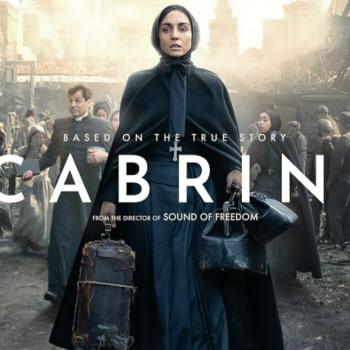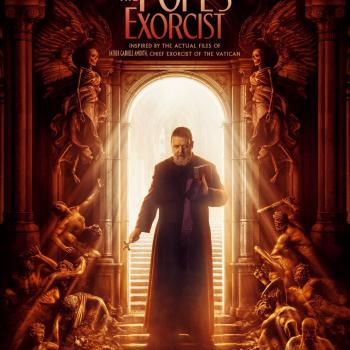“The Identical” is an odd film.
The fictional story is that identical twin sons were born to a poor young couple in the rural south in the middle of the Great Depression, William (Brian Geraghty) and Helen Helmsley (Amanda Crew). That night, William attends a tent rally where the preacher, Reece Wade (Ray Liotta), teaches “It is more blessed to give than to receive” (Acts 20:35). Then he asks for prayers for his wife, Louise (Ashley Judd), because she has just miscarried again and the doctor tells them to stop trying or it could kill her.
William tells his wife, Helen, that they only way they can survive is to give away one of their sons, like the preacher said, “It is more blessed to give that to receive.” They ask the preacher and his wife to visit and they come prepared to give some money to the younger couple. Instead, they leave with a little baby, Dexter, that they rename “Ryan.” Drexel stays with his parents and the next day, William and Helen bury an empty shoebox on the hillside, pretending that one of the twins has died. William makes Reece promise to never tell the baby about his real parents until he and Helen are both deceased. The fact that the lives of both families, though well intentioned, are now built on a lie, does eventually wear on the parents.
Drexel grows up to become a rock and roll singer similar to Elvis Presley. Ryan’s path, however, is set to follow his adoptive father into the ministry, after a stint singing his way through the army, for he is very talented, just like his twin brother. Ryan senses that something, or someone, is missing from his life.
“The Identical” looks good and sounds good. Blake Rayne, who plays the twins as young men, is truly talented and looks and sounds like Elvis – an identical? Rayne won an Elvis impersonator contest in 1998 and went to Nashville to record his own music. The acting is pretty good, especially by the veteran actors, such as Joe Pantoliano, whose New York accent in Tennessee, well, not to put too fine a point on it, is just a little out of place.
But there are the problems with “The Identical.” First of all, the connection to the real Elvis Presley in looks and tone, while never hearing one of his tunes, or even a reference to him, is a peculiar, powerful distraction that never goes away. This makes the film odd, for want of a better word.
Then the references to Israel, from the preaching in Reece’s first sermon, to the footage of the Six Day War in 1967, to the symbols on the headstones in the cemetery at the end, doesn’t make sense – except that the director, Dustin Marcellino, was raised in “the culture of Israel” and knows Hebrew. I think this is more of a nod toward “dispensationalism” and the “Left Behind” singular interpretation of scripture than political affinity. Dispensationalists teach that the Jews must occupy Jerusalem and Israel so that Jesus can come again. (By the way, neither mainstream Protestants or Catholics or Eastern Orthodox adhere to this “teaching” that derives from a small, early 19th century British sect, the Plymouth Brethren.) To place this teaching deliberately in the film is … odd. The television announces the beginning of the Six Day War and the caption says “Beginning of the Six-Day War.” I mean, how did they know on day one it would only last six days? Again, odd. Why put in this 1967 war in as a cultural and historical marker and never mention Elvis, or Vietnam? Odd. In case you have any doubts, this situates the film squarely in the evangelical Christian genre.
Thrusting hips, liquor, and smoking are predictably frowned upon and discouraged, as it was with Elvis, too. The language in the film is pristine.
The movie wants to teach us that God has a call for each of us and parents have to let their children follow their call. It wants to teach us that children should write and sing their own music and not just mimic others. OK. I might add that the wisdom and research is showing that children who are adopted need to know and have access to information about their birth parents – not that the boys in this movie even had birth certificates. The days of secrecy have to end. Everyone has a right to his or her actual birth certificate. Adoptees may find something here to resonate with their experience. I am not sure the film wants to say this, but it does imply it.
As a “Christian” movie, for this is the film’s genre, or sub-genre because it is not rooted in mainstream Protestant Christianity but evangelicalism, “The Identical” is on the high end as far as production values, casting, and music. Evangelical Christian viewers will likely forgive the filmmakers the flaws in the odd conceptual logic of the story and its production because it fits their theology, but I don’t think mainstream Christians will be impressed on the theological front, or the general public because of the odd Elvis ghosting.
Overall, as a film, “The Identical” is so peculiar that, well, I feel distracted. I would like to see what comes next for Blake Rayne, though, and I hope he follows the advice of the film and goes his own way and hasn’t hitched his wagon too strongly to this particular kind of movie.












